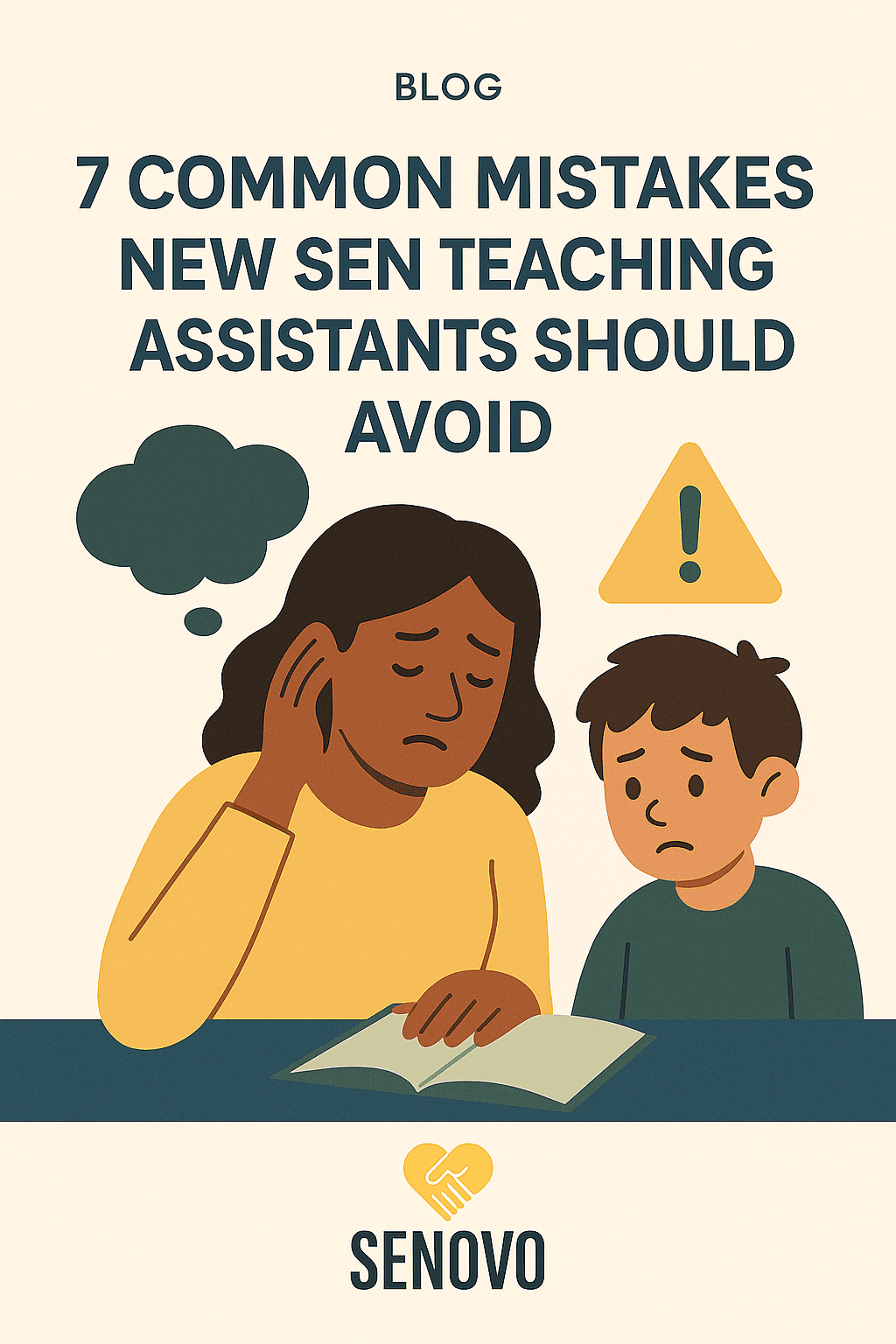Starting a role as a Special Educational Needs (SEN) Teaching Assistant is incredibly rewarding—but it also comes with a steep learning curve. Whether you’re supporting children with autism, SEMH needs, or complex learning difficulties, it’s easy to fall into common traps early on. This guide will help new SEN TAs avoid the most frequent mistakes and start their journey on the right foot.
1. Not Asking Enough Questions
You won’t have all the answers on day one—and no one expects you to. But failing to ask questions can lead to missed opportunities to support pupils effectively. Good TAs are curious, proactive, and keen to learn from teachers, SENCOs, and other professionals.
Tip: Always clarify expectations, ask about a pupil's specific needs, and seek feedback after lessons or support sessions.

2. Trying to Do Too Much Alone
Many new TAs feel they have to "fix" every problem themselves. But working in SEN is a team effort. Teachers, therapists, support staff, and parents all play a role.
Tip: Share observations and concerns. Collaborate early and often.
3. Speaking for the Pupil
Sometimes, with the best intentions, TAs answer on behalf of a child. But this can unintentionally reduce their confidence or independence.
Tip: Give pupils time to respond. Use prompts, not answers. Independence is the long-term goal.
4. Forgetting the Importance of Boundaries
Building trust is crucial, but some new TAs may become too informal or emotionally involved. This can lead to blurred boundaries and burnout.
Tip: Be warm and supportive—but always professional. Use supervision and team support to process challenges.
5. Overlooking Sensory Needs
SEN pupils may struggle with sensory sensitivities (noise, light, textures), which affect behaviour and focus. New TAs sometimes miss these cues.
Tip: Learn how sensory processing impacts your pupils. A calm corner, sensory tools, or adjusted lighting can make a big difference.
6. Underestimating the Power of Routine
Predictability creates safety. New TAs may unintentionally disrupt established routines, causing confusion or anxiety for pupils.
Tip: Stick to established classroom structures. If change is needed, prepare students with visual supports or social stories.
7. Not Taking Care of Yourself
Working in SEN can be emotionally demanding. Without proper support, new TAs may experience stress or compassion fatigue.
Tip: Prioritise breaks, talk to colleagues, and reflect regularly. A regulated adult helps regulate the child.
Final Thoughts
Mistakes are a natural part of learning, but avoiding these common ones can help new SEN TAs build strong foundations early. Your presence, patience, and professionalism can make a lasting difference.
At Senovo, we place and support SEN Teaching Assistants who are committed to continuous growth. If you're ready to make an impact, we’re here to help you thrive.

